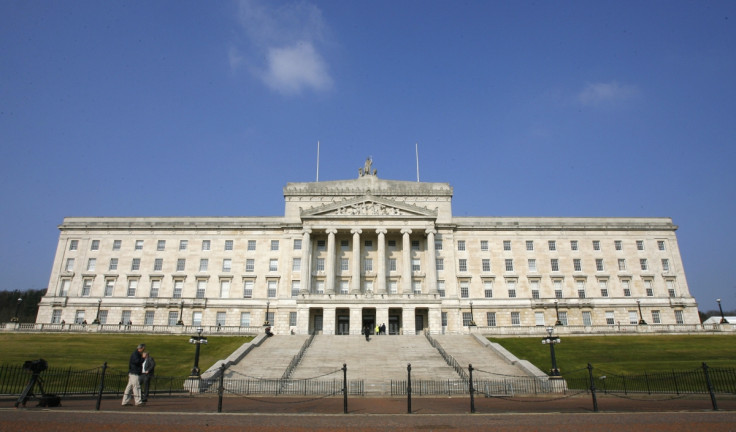Stormont agreement: Deal reached to save Northern Ireland power share after Troubles legacy crisis

A deal has been reached in Belfast to salvage the power-share crisis that has engulfed Northern Ireland's politics. After 10 weeks of talks, Sinn Fein, the Democratic Unionists (DUP) and the UK and Irish governments endorsed an agreement on a number of issues including welfare reforms, but failed to agree how to deal with the legacy of The Troubles.
The agreement – A Fresh Start: The Stormont Agreement and Implementation Plan – runs to nearly 70 pages. Issues such as recent murders linked to the IRA and non-implementation of welfare reforms had seen the coalition into the verge of collapse.
DUP leader and Stormont First Minister Peter Robinson announced his resignation in September after parties rejected a proposal to adjourn the power-sharing institutions following the killing of Kevin McGuigan, a former IRA member who was shot dead on 12 August.
Among the key reforms in the agreement are:
- An additional £500m from the Exchequer to tackle issues unique to Northern Ireland, including efforts on the removal of peace walls.
- Devolving corporation tax powers to bring in a 12.5% rate in line with the Republic of Ireland.
- Fresh obligations on the NI parties to work together to end the presence of paramilitarism.
- Concerted efforts to target organised and cross-border crime.
- Measures to address the issue of flags and parades.
- Reform of the Stormont Assembly including its size, the number of departments and the use of petitions of concern as a form of opposition.
However, regarding the legacy of The Troubles, Irish Foreign Minister Charlie Flanagan said: "Regrettably, [the deal] did not prove possible to find an agreement at this stage on the appropriate balance between the onward disclosure needs of families and national security arrangements."
Northern Ireland Secretary Theresa Villiers added: "This deal means that Northern Ireland's finances can be put back on a sustainable footing, ending the long-standing dispute over the budget. There will be a fresh emphasis on tackling paramilitarism and organised crime and a clear declaration that such activity will never be tolerated.
"And there will be reforms of the Executive and Assembly to make devolution work better. Today's agreement is another step towards the Government's goal of building a brighter, more secure future for all the people of Northern Ireland."
Great Britain's prime minister, David Cameron, said the agreement was "an important turning point for Northern Ireland". He added: "The agreement secures sustainability for Northern Ireland's budget, sets out how we'll deal with paramilitary groups, and could provide a basis for a shared future for the people of Northern Ireland.
"What is vital now is that the parties in Northern Ireland use this agreement as the platform for stable devolved government that delivers on the day to day issues that matter to people."
© Copyright IBTimes 2025. All rights reserved.






















